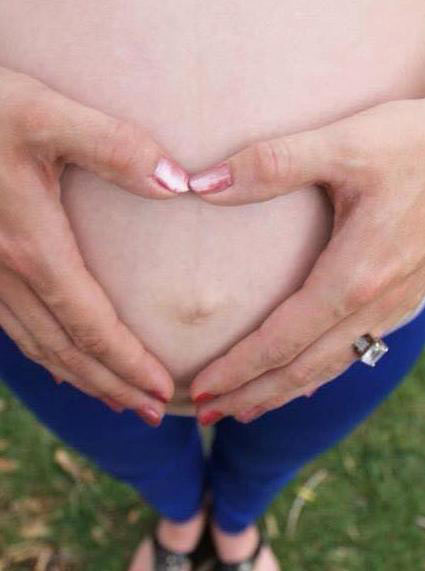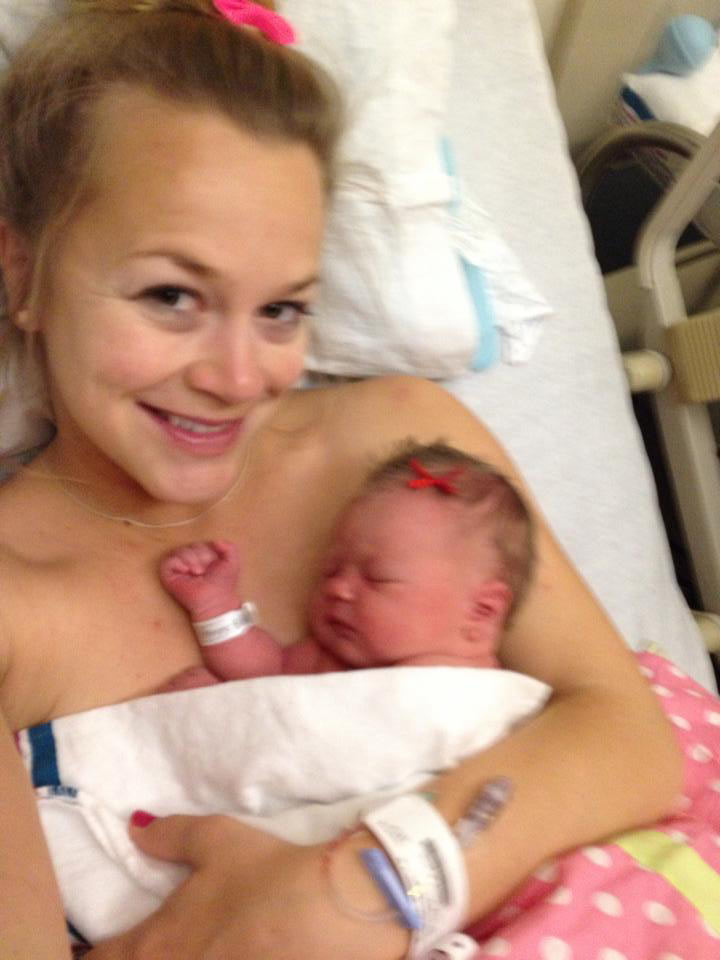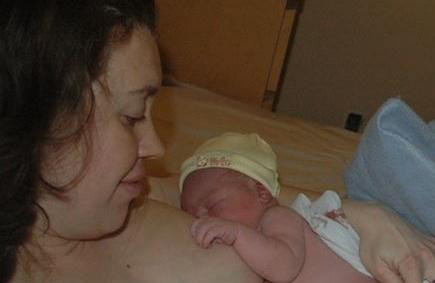First Trimester: Breastfeeding: The Journey Begins Here

How will I feed my baby?
Whether you just found out you’re pregnant or you are towards the end of your 1st Trimester, it is never too soon to start thinking about how you will feed your baby once they are born. There are many benefits to breastfeeding for you and your baby. Trust your body and trust your baby!
- When your baby is born your breasts supply colostrum-the first milk. This is liquid gold! Colostrum has antibodies, a stool softener and a digestive primer to help your baby’s stomach stretch.
- Breast milk provides the appropriate nutrients your baby needs to grow. These nutrients change as your baby’s needs change.
- Breast milk supplies your baby antibodies. This means that your baby will get your antibodies and protection against different illness as soon as they start breastfeeding and protection throughout life!
- Breast milk is perfect for your baby’s tummy. Formula contains cow’s milk or soy proteins that are difficult for a baby to digest.
Can my body do the job?
Yes! Your breasts are mammary glands. The purpose of breasts is to produce milk to feed your baby.
- Breasts come in different sizes and shapes. Throughout pregnancy your breasts will continue to change in order to support breastfeeding. Remember that humans are mammals and mammals are made to breastfeed their babies.
- Expect your breasts to grow as you continue through your pregnancy. Don’t be surprised as your bra size increases throughout the pregnancy. There is no need to prepare your breasts for breastfeeding. Your body will prepare your breasts for you.
- Your body will make milk as long as your baby breastfeeds. The recommendation is to exclusively breastfeed for the first six months of a baby’s life, continuing through the end of the first year, or more.
How do I get my family on board?
- As you begin your pregnancy, it is not uncommon to become overwhelmed with all the decisions that you will need to make. Remember to use your family for support as you make decisions.
- Begin talking to your family about your decision to breastfeed your baby. If you or your partner are concerned about the cost of having a baby, keep in mind: breast milk is free!
- As a breastfeeding mother, you can get more rest because your baby will become more and more efficient at breastfeeding.
- As you start to learn about all the benefits of breastfeeding, find a benefit that appeals to your support person as well. If they know why breastfeeding is important for you and your baby, they will be better able to support you after the baby is born.
How will this benefit my baby?
Yes! Your breasts are mammary glands. The purpose of breasts is to produce milk to feed your baby.
- Breast fed babies stop eating when they are full. They tend to not be obese as adults.
- Fatty acids in breast milk are ideal for brain development. Breastfed babies have, on average, a higher IQ.
- Breastfeeding decreases the risk of Sudden Infant Death Syndrome (SIDS) by 50%.
Second Trimester: Breastfeeding: Getting Ready

What supplies will I need to breastfeed my baby?
- Your breasts are the perfect tool!
- Your baby is born with instincts to breastfeed!
- A comfortable, supported place to sit
- Comfortable, well-fitting nursing bra, for day and night. The size may change as your milk comes in, so you may want to start with a few for the first days and then add to your collection as your supply is established. Check the return policy or be sure to try them on before purchasing. A sizing chart is available here.
- Nursing pads: available in washable or disposable varieties
- Nursing pillow (if desired)
- Nursing stool (if desired)
- Breast pump: if you will spend time away from your baby (contact your insurance company to find out what type they might supply)
Will this benefit me? Yes!
- Breastfeeding is a huge cost savings: Breast milk is free!
- The recommendation is to exclusively breastfeed for the first six months or longer.
- Breastfed babies are healthy! Parents of breastfed babies take less time off work to care for sick infants.
- Mothers who breastfeed have a lower occurrence of ovarian cancer, breast cancer, Type 2 diabetes, and osteoporosis.
How can my partner help?
- Make sure you have water at each feeding
- Burp the baby
- Change baby’s diaper
- Walk, bounce or rock a fussy baby
- Hold the baby skin to skin
- Sing a lullaby
- Recognize hunger cues
- Be an advocate for baby and mom
Will I need to eat differently?
Not usually. You should:
- Continue to eat an extra 500 calories a day.
- Continue taking your prenatal vitamins daily.
- Drink plenty of fluids daily to stay hydrated.
- Most babies are not bothered by their mothers’ diet.
- Most medications can be safely taken.
- Food restrictions from pregnancy are lifted.
What are some helpful resources?
- La Leche League of Albuquerque: warm line: 505.821.2511
Facebook group: https://www.facebook.com/groups/AlbuquerqueLLL/ - Breastfeeding Made Simple: by Nancy Mohrbacher and Kathleen Kendall-Tacket
- Kelly mom: www.kellymom.com
- NM Breastfeeding Taskforce: www.breastfeedingnewmexico.org
- Medications and Mother’s Milk: Dr. Thomas Hale
- Hand Expression of Breastmilk: http://newborns.stanford.edu/Breastfeeding/HandExpression.html
- Video of Hands on Pumping: http://newborns.stanford.edu/Breastfeeding/MaxProduction.html
Third Trimester: Breastfeeding: Feel Prepared

What should I expect following delivery?
- In a typical situation, your baby will delivered directly on to your skin following a vaginal birth. After a Cesarean birth , you will start skin to skin contact either in the operating room or in the recovery room.
- Your baby may seem drowsy at first or may be very alert. It is beneficial for your baby to breastfeed in the first hour after delivery.
- Recline in your bed and allow the baby to lay between your breasts or on your chest above your breasts if you have an incision.
- Watch your baby for hunger cues!
How can my partner help? They can:
- Advocate for mom and baby to have the entire first hour of life, together, skin to skin
- Hold baby skin to skin until mom can, if she has a C-Section
- Monitor visitors
- Help record feeding and diapers on log
- Bring mom water, snacks, and meals
- Hold baby skin to skin while mom rests
- Practice recognizing hunger cues
- Encourage mom to continue skin to skin
- If mom is having a hard time, encourage her to ask for help, or call someone for her.
- Encourage mom to Breastfeed throughout the first year.
How will I know when my baby is hungry?
Babies will show hunger cues when they want to eat.
Hungry babies:
- Put their hands in or near their mouths
- Stick their tongues out
- Make sucking motions with their lips
- Rub their hands over your skin looking for a “bump”
- Rub their face and mouth on any skin they find
- Move their head and limbs in a light state of sleep
- Cry: last sign of hunger
Am I doing it right?
- Baby may not feed very often on the first day, and much more frequently on the second day, or they may feed a lot from the beginning.
- Expect baby to feed at least 8-12 times per day, including at night. Your baby will room in with you which helps you notice feeding cues from your baby.
- Baby’s belly can only hold about a teaspoon of colostrum. Feedings may be short, as baby’s belly fills up quickly, and frequent, as baby’s belly empties out quickly.
- If your baby has one wet and one dirty diaper in the first 24 hours, that’s a good sign that baby is getting enough. Keep tracking diapers!
- It is normal for your breasts to feel soft until your milk comes in. Frequent feeds help your supply!
- Pain with initial latch can be common, however, if you are experiencing pain further into or in between feedings, ask for help.
Why is skin to skin so important?
“Skin to skin” means having the baby in just a diaper in direct contact with mom’s (or partner’s) skin. A light blanket can be placed over both of you to help contain warmth and provide modesty.
When baby is skin to skin:
- Mom’s body is baby’s natural environment.
- Baby’s body temperature, heart rate, and breathing regulate.
- Baby’s blood sugar is higher and more stable
- Baby can smell your colostrum which encourages feeding cues
- Your skin and the baby will both be covered in amniotic fluid, which smells like colostrum and further encourages feeding cues.
- Early brain development and neurological connections are supported.
- Baby’s feed more frequently, decreasing the likelihood of jaundice and improving mom’s milk supply.
- Improves early initiation of breastfeeding and duration of breastfeeding.
- Increases likelihood that baby will latch well, improving milk transfer and mom’s comfort.


